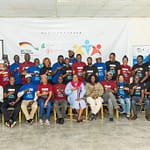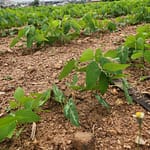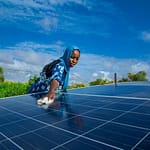Nigeria, a nation at the crossroads of economic challenges, faces a dual struggle with exchange rate volatility and the imperative to attract foreign investments. These developments have garnered attention on the global stage, with experts and officials weighing in on the country’s economic future.
Naira-Dollar Rate Volatility
The exchange rate between the Nigerian naira and the US dollar has been on a rollercoaster ride. Initially, it weakened to N983/$1, but reports on social media even indicated rates as high as N1000/$1. Presently, it hovers around N984 on peer-to-peer platforms, while the official NIFEX window stands at N770.7/$1. This fluctuation comes shortly after the Central Bank unveiled plans to clear a $10 billion foreign exchange backlog with commercial banks.
The acting Governor of the Central Bank, Folashodun Shonubi, emphasized that banks would play a crucial role in this endeavor to meet obligations. However, despite these efforts, liquidity in the forex market appears to be tightening, leading to further depreciation of the exchange rate. Licensed Bureau De Change operators and other market players are grappling with a scarcity of available dollars.
![Folashodun Shonubi, The acting Governor of the Central Bank of Nigeria. [Photo/Courtesy]](https://mlmkoxknobqn.i.optimole.com/w:840/h:430/q:mauto/ig:avif/https://lidanetwork.org/wp-content/uploads/2023/09/fv4k9kqTURBXy9iZjdlZWM2NTVjOGM4NWJlOTZkZWE2YmE0ZGRjZmQ2MS5qcGVnkpUDACHNA4TNAfqTBc0DFs0Brt4AAaEwBQ.webp)
Many experts express doubts about the Central Bank’s ambitious plan to improve forex liquidity within two weeks, considering the time frame. Coincidentally, this exchange rate depreciation aligns with the Nigerian president’s visit to New York, where he seeks foreign direct investment. The US Deputy Secretary of Treasury, Wally Adeyemo, took the opportunity to emphasize that Nigeria requires a more robust macroeconomic framework to attract dollar-denominated foreign investments.
Read also: NIGERIA’S GROWING FX CARTEL UNDER CBN’S WATCH
US Deputy Secretary Calls for Reforms
Wally Adeyemo, the US Deputy Secretary of Treasury, delivered a candid assessment during a forum at the Lagos Business School. He underscored Nigeria’s need for a stronger macroeconomic foundation to make it more appealing to foreign investors.
Adeyemo acknowledged Nigeria’s initial steps in fiscal policy and exchange rate unification but stressed the need for further efforts. He highlighted that as global companies gain confidence in Nigeria’s approach, it could become a prime destination for foreign direct investments.*

Responding to inquiries about investments and Nigeria’s economic challenges, Adeyemo pointed out that the lack of a robust macroeconomic framework, coupled with external shocks like COVID-19 and the Russia-Ukraine war, has made economic recovery challenging. He emphasized the importance of implementing reforms that encourage capital inflow, ensure investment security, and facilitate the repatriation of funds.
Subscribe to LIDA Network
Adeyemo conveyed the US government’s optimism about Nigeria’s potential and its readiness to collaborate on implementing reforms. He also noted the significant US investments in Nigeria, both in trade and financial assistance, and mentioned cooperation with international institutions like the World Bank to support Nigeria’s transition and mitigate economic challenges.
Nigeria is at a critical point, striving to stabilize its currency and attract foreign investments while acknowledging the imperative need for a more robust macroeconomic framework. Adeyemo’s remarks highlight the willingness of the US and other international organizations to support Nigeria’s efforts in achieving economic stability and prosperity.
Edited by Samwel Eviator












